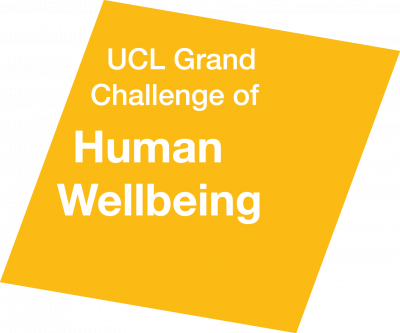Humanising Hospitals: built environment contributing to cancer patients' wellbeing & mental health
A cross-disciplinary project that explores the relationship between older (65+) cancer patients' mental health and the physical environment of cancer clinics.

1 September 2022
An increasing proportion of the older population and their healthcare needs constitute one of the major societal problems. By 2050, the world’s population of people aged 60 years and older is estimated to double by 2.1 million. Rates of cancer increase with age and make up for one of the primary causes of morbidity and mortality in Europe. Cancer patients’ experience of mental and physical fatigue and anxiety can be more pronounced due to ageing. This research sought to address the therapeutic potential of the built environment of cancer clinics, spaces in which patients receive several hours long mentally and physically draining treatments.
To initiate the research, a review of the literature on built environment and anxiety, stress and well-being in healthcare facilities was conducted. There was a focus on outpatient clinics, as these may fail to support socio-spatial needs, such as privacy and control, more so than inpatient facilities.
The project team organised two focus groups with older cancer patients and medical staff to understand patients’ experience in the clinics, with an emphasis on social-spatial elements, changes in cognitive and sensory experience, mobility, and psychological well-being, all of which are influenced by ageing and cancer. The first group meeting was recorded, transcribed, and coded by all researchers. A thematic analysis of the discussion revealed several themes, which informed the Qualtrics survey questions. These were: accessibility, art, carer, environmental comfort, environmental atmosphere, privacy (auditory), privacy (visual), positive distractions, staff attitude, waiting, wayfinding, feelings, and mood. A follow-up meeting was designed to gather patient representatives’ feedback on the draft Qualtrics survey which led to changes and improvements to the survey. The survey has been finalised and will be distributed, pending ethics amendment approval. Dr Morhayim and Dr Wong are in the process of writing a methodological paper outlining the co-production process with patient representatives.
The funding has enabled a working relationship across two disciplines, leading to the development of a new quantitative assessment tool for the impact of the built environment on cancer patient’s mental well-being with the potential to be applied and used to increase hospitals’ understanding of patient needs. The next steps include launching a pilot study with fifty patients using the quantitative assessment tool.
The project’s progress was presented at two conferences:
- Morhayim, L., Wong, K., Whitaker, K., Garcia-Sterling, Y., Yuncong, L., 2023. “Humanizing cancer clinics: Coproducing an interdisciplinary tool to examine the link between cancer patients' mental health and architecture,” The International Conference on Applied Human Factors and Ergonomics (AHFE), July 20- 24, 2023, San Francisco, California, USA.
- Morhayim, L., Wong, K., Whitaker, K., Garcia-Sterling, Y., Yuncong, L., 2023. “Humanizing cancer clinics: Coproducing an interdisciplinary tool to examine the link between cancer patients' mental health and architecture” Environmental Design and Research Association (edra), Environment and Health: Global/Local Challenges and Actions, June 20-23, 2023, Mexico City, UNAM, Mexico.
Dr Morhayim and Dr Wong have been contacted by the UCL ICU medical team to run similar user-focused research regarding the architecture of their ICU wards.
 Close
Close


